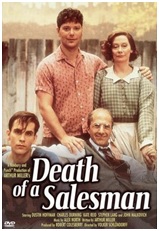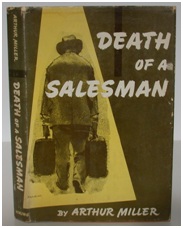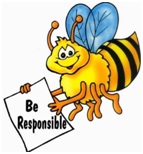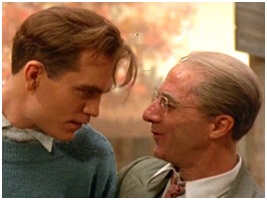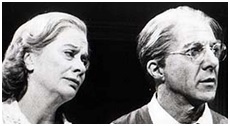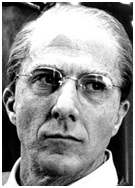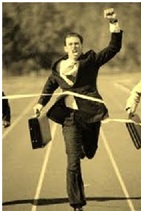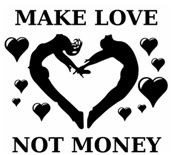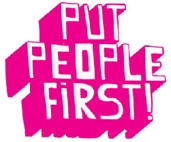|
 |
|
 |
|
|
||
Death of a Salesman - Success and Happiness
Death of a Salesman (1949)
A play written by Arthur Miller (1915-2005), pictured right, who also wrote The Crucible (1953)
Fun facts
Key characters Willy Loman, American travelling salesman. Biff, his 34-year-old son. Linda, his wife. Happy, his 32-year-old son.
The story Willy Loman, a salesman, returns to his loving wife, Linda, in Brooklyn,
New York, one night, exhausted from an unsuccessful sales trip. He criticizes his unhappy son,
Biff, for working as a lowly paid farm labourer for ten years. His brother, Happy, a department store employee, is also guiltily dissatisfied with his life and works at a department store, sleeping with executives' fiancées and taking bribes from manufacturers. Biff and Happy fantasize about buying a ranch out West. Willy plays cards with his neighbour, Charley and refuses his job offer (taking it as an insult to his ability as a salesman). Charley storms off after wrongly being accused of cheating by Willy who (in a daydream) talks enviously with Ben, his brother, about his successful African diamond mining career and how happy their father was as a flute maker. Biff upsets his mother, Linda, by attacking his father for being a “fake” and having “no character”. Linda disagrees, saying he's done well surviving his unfulfilling and poorly paid work as a salesman, and he has made several suicide attempts. Happy suggests that he and Biff set up a sports goods business which pleases Willy, who constantly complains that Biff hasn't fulfilled his dreams for him (wealth, business success and American football stardom). Willy compares Biff unfavourably with Charley's son, Bernard, a successful lawyer and Biff's school friend. Bernard tells Willy that Biff was angry and failed to graduate from school because of a trip to Boston.
Biff is devastated and disillusioned when he sees his father there with his mistress, giving her his mother's
stockings. From that moment Biff goes downhill, being fired in all his jobs for stealing. The next day Willy is angry at being sacked by his boss, Howard Wagner, despite 34 years service. Willy regrets the passing of the old days when there was friendship and respect in business. Charley again offers him a job (also refused) and angrily gives him his usual loan, scolding him for always needing to be liked. Biff is determined to correct Willy’s illusions about him, proving how unsuccessful and unhappy he is. But he won’t listen, making Biff extremely angry. Willy kills himself for the $20,000 life insurance money to help Biff. His family, Charley and Bernard are the only people at his funeral. Linda is bewildered that there is nobody from his work. Biff says he had the wrong dreams. But Happy strongly disagrees, and Charley praises Willy as a salesman, saying his sales depended on giving and receiving a smile. Linda sobs ironically saying, “We’re free”, because that day they had made the last mortgage payment on their house. But Willy wasn't there to enjoy it.
What does it tell us about success and happiness? 1. Have the right dreams Willy’s ideals are based on money, appearance, and superficial relationships. Instead (as Biff realizes) he should have valued love, true friendship and integrity. He wrongly tells Biff that it’s not what you say that counts but how you say it. “He had the wrong dreams”, Biff says at his funeral.
2. Money can’t buy you love Willy’s obsession with money:
Willy (Dustin Hoffman) is pictured right with Biff (John Malkovich) in the 1985 film.
3. Accept people as they are What Biff really wants is for Willy to accept him for what he is, not what Willy would like him to be.
4. Value your true friends Because he wants everyone to like him, Willy tragically neglects the people that care most for him:
Pictured right is Dustin Hoffman (Willy) and Kate Reid (his wife, Linda) in the 1984 play.
5. Face reality Willy:
6. Know yourself Willy (Dustin Hoffman, pictured right, in the 1985 film) doesn’t know his strengths and weaknesses. Biff says about him: “He never knew who he was”. If he had accepted that he was a poor father, husband and salesman, he would have done something about it - like:
7. Be competitive Ben (Willy's brother), Charley and his son, Bernard are more successful than Willy because they
“The jungle is dark but full of diamonds”, says Ben,
8. Self-respect You must believe in yourself to be happy and successful but Biff feels worthless. 9. Be ethical Willy loses Biff’s trust and respect when, as a schoolboy, he finds him with his mistress. This badly affects his school work, missing the chance of university. His mother, Linda, is very loving but condones Willy’s wrong beliefs by not challenging them. Happy is guilty because at work he takes bribes and steals other people's fiancées.
10. Remember that nobody is perfect Unlike Happy, Biff realizes that his father, like everyone else, has weaknesses. 11. Find the right work Willy is destroyed by his job, because it is exhausting, poorly paid and unfulfilling. He should have done what he enjoyed - making things like his flute making father. He says about his work: “After all the highways, and the trains, and the appointments, and the years, you end up more dead than alive” Biff wants to get out of the rat race, so he has worked for years as a lowly paid farm labourer. 12. Treat people fairly Willy is angry about his dismissal, telling his boss “You can’t cut the orange and throw the peel away – a man is not a piece of fruit !”
13. Think about your legacy Willy lives under the illusion that he will be remembered as a great salesman. In reality his real legacy was the love of his family and friends, who should have been his top priority. Through his affair, he hurts Linda and Biff, the people he loves most. He is also unkind and ungrateful to his best friend, Charley. 14. Remember that people are human beings Linda says that Willy wasn't a great or rich man but a human being to whom “attention must be paid”. His boss inhumanly fires him, despite his 34 years service.
Key quotes on success He had the wrong dreams, Biff He’s not the finest character that ever lived. But he’s a human being and a terrible thing is happening to him. So attention must be paid, Linda Life is an oyster but you don’t crack it open on a mattress!, Willy.
Key quote on family We never had the truth in the house for ten minutes, Biff
Key quote on happiness My own apartment, a car and plenty of women and still, goddamit, I’m lonely, Happy Work a lifetime to pay off a house. You finally own it, and there’s nobody to live in it, Willy.
Key quotes on selling A salesman has got to dream, boy. It comes with the territory, Charley The only thing you got in the world is what you can sell, Charley
Two literature websites to recommend 1. sparknotes.com 2. litcharts.com
|
|
|
||
|
|
||
| Copyright © wisdomtowin.com 2025 All Rights Reserved | ||
|




